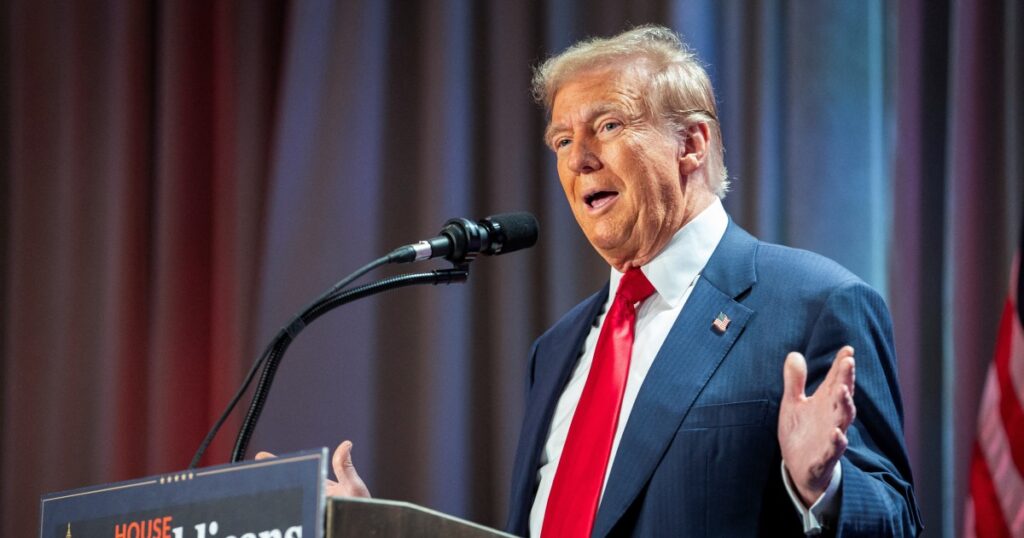United States President-elect Donald Trump has pledged to slap a 25 percent tariff on all goods from Mexico and Canada and an “additional” 10 percent tariff on Chinese products in response to irregular border crossings and drug trafficking.
Trump said on Monday that he would impose tariffs on Mexican and Canadian imports on day one of his administration and that the measures would remain until the “invasion” of undocumented migrants and drugs came to an end.
“Both Mexico and Canada have the absolute right and power to easily solve this long simmering problem,” Trump said on his social media platform Truth Social.
“We hereby demand that they use this power, and until such time that they do, it is time for them to pay a very big price!”
Trump said in a subsequent post that he would also impose a 10 percent tariff on China, “above any additional tariffs”, until the country took action to stop fentanyl smuggling.
During his election campaign, Trump pledged to impose tariffs of 60 percent or more on imports of Chinese goods and suggested he could impose a tariff of 1,000 percent or higher on vehicles imported from Mexico.
“Representatives of China told me that they would institute their maximum penalty, that of death, for any drug dealers caught doing this but, unfortunately, they never followed through, and drugs are pouring into our country, mostly through Mexico, at levels never seen before,” Trump said.
Trump’s announcement immediately generated backlash and reverberated throughout international markets, sending the Canadian dollar, Mexican peso, the euro, the British pound, the Korean won and the Australian dollar lower against the US dollar.
A spokesperson for China’s Embassy in Washington said that “no one” would win a trade war between the sides.
“About the issue of US tariffs on China, China believes that China-US economic and trade cooperation is mutually beneficial in nature,” spokesperson Liu Pengyu said in a statement.
The Canadian Broadcasting Corporation, Canada’s national broadcaster, called the president-elect’s remarks “his most severe threat against Canada in years”.
“And so it starts,” Catherine McKenna, Canada’s former environment minister, said in a post on Bluesky.
“The amount of time and energy our government had to spend on Trump last time was bonkers.”
Trump’s proposals would have potentially enormous ramifications for international trade and would cast doubt on the future of the US-Mexico-Canada Agreement he signed into law during his first term, though the Republican has made similar threats in the past without following through.
Trump’s pick for treasury secretary, Scott Bessent, has described tariffs as a “useful tool” for strengthening the president’s hand with other countries.
Numerous economists have warned that Trump’s proposals for broad-based tariffs would raise the cost of everyday items in the US and dampen global growth.
Trump’s supporters have argued that tariffs will encourage the return of manufacturing jobs from overseas and give his administration greater leverage to extract more favourable trade deals from other countries.
China, Mexico and Canada are the US’s three biggest trading partners.
The countries accounted for $830bn of US exports and $1.43 trillion of US imports, respectively, in 2022, according to the Office of the US Trade Representative.
https://www.aljazeera.com/economy/2024/11/26/trump-promises-25-tariff-on-mexico-and-canada-extra-10-tariff-on-china?traffic_source=rss


